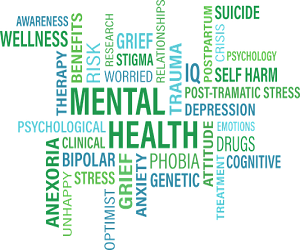


The journey through life is a complex interplay of past and present, with our childhood experiences profoundly shaping the adult relationships we form. These early years serve as the foundation for emotional development, and the impact of childhood experiences on adult relationships is a compelling and enduring topic. In this article, we explore the role of childhood experiences in influencing adult relationships, emphasizing the enduring echoes that reverberate through the years.
The Crucible Of Emotional Formation: Childhood Experiences
Childhood is the cradle where our emotional landscapes take root, where our first encounters with love, trust, attachment, and vulnerability occur. These early connections are pivotal in shaping the emotional architecture of our adult relationships. Whether they are positive or negative, these formative years leave an indelible mark on our ability to connect with others in the future.
 Positive Childhood Experiences: The Nurturing Ground For Healthy Adult Relationships
Positive Childhood Experiences: The Nurturing Ground For Healthy Adult Relationships
Positive childhood experiences are akin to nurturing the soil in which healthy adult relationships grow. In such environments, children learn the importance of trust, empathy, and effective communication. These are the building blocks for forming meaningful and lasting emotional connections in adulthood.
Trust: A child who grows up in an environment where trust and reliability are the norm is more likely to trust others in adulthood. Trust forms the bedrock of any meaningful relationship.
Empathy: Childhood experiences that emphasize empathy and compassion help individuals develop a deep understanding of the emotions and needs of others. This skill is pivotal in building strong emotional connections.
Effective Communication: A nurturing childhood encourages open and honest communication. Children who grow up in such environments are better equipped to address issues and conflicts in their adult relationships, fostering better emotional connections.
Boundaries: Learning about personal boundaries early in life helps individuals establish and respect healthy boundaries in their adult relationships, finding the right balance between independence and intimacy.
Challenges Of Negative Childhood Experiences
Conversely, negative childhood experiences can leave a lasting impact on adult relationships. Trauma, neglect, or adverse family dynamics during childhood can hinder an individual's ability to form and maintain healthy connections in adulthood.
The Impact On Adult Relationships: A Closer Look
Attachment Styles: Childhood experiences significantly influence the development of attachment styles, which continue to affect adult relationships. Secure attachment styles, rooted in positive childhood experiences, generally lead to healthier relationships. Insecure attachment styles, often a result of negative experiences, can pose challenges in forming emotional connections.
Behavior Patterns: Childhood experiences influence the patterns of behavior individuals carry into their adult relationships. For example, a person who grew up in a home with poor conflict resolution skills may struggle with communication in their relationships.
Self-Perception: The way we perceive ourselves is deeply impacted by our childhood experiences. Positive experiences tend to create a healthy self-image, while negative ones can lead to feelings of inadequacy or unworthiness in adult relationships.
Interpersonal Dynamics: How we interact with others, our ability to trust, offer support, or express affection, is heavily influenced by our early experiences. These dynamics can significantly impact the quality of our adult relationships.
Nurturing Healthy Adult Relationships
Understanding the profound impact of childhood experiences on adult relationships is the first step towards making positive changes. Here are some ways to nurture healthier relationships:
Self-Reflection: Reflect on your own childhood experiences and how they might be influencing your adult relationships. Self-awareness is a crucial first step for positive change.
Seek Support: If you have unresolved issues from your childhood or face challenges in forming emotional connections in your adult relationships, consider seeking professional help. Therapy can provide guidance and tools to address these issues.
Effective Communication: Work on your communication skills. Open and honest communication is essential for fostering emotional connections in your adult relationships.
Empathy And Understanding: Practice empathy and understanding toward your partner's needs and experiences. Being present and supportive can strengthen emotional bonds.
Healthy Boundaries: Establish and maintain healthy boundaries in your relationships to strike a balance between independence and intimacy.
The impact of childhood experiences on adult relationships is profound. These early connections lay the groundwork for how we connect with others and navigate relationships in adulthood. Acknowledging this influence and actively working to nurture healthier connections can lead to more fulfilling and harmonious adult relationships characterized by secure emotional connections and healthier interpersonal dynamics.
The Bond That Sustains
 Emotional Connection: Love is the emotional glue that binds individuals together. It cultivates a sense of deep connection and intimacy, which is the foundation of any strong and meaningful relationship. This emotional connection fosters trust, comfort, and a genuine understanding of one another.
Emotional Connection: Love is the emotional glue that binds individuals together. It cultivates a sense of deep connection and intimacy, which is the foundation of any strong and meaningful relationship. This emotional connection fosters trust, comfort, and a genuine understanding of one another.
Support And Care: Love is synonymous with care and support. When you love someone, you're willing to go to great lengths to ensure their well-being, happiness, and personal growth. It's about being there for your partner, family member, or friend during both the highs and lows of life.
Acceptance And Understanding: Love encourages acceptance and understanding. It's the ability to embrace your loved ones, flaws and all, and to appreciate their uniqueness. Love allows individuals to be their authentic selves without judgment or criticism.
Motivation For Growth: In loving relationships, there is often a shared motivation for personal growth and self-improvement. Love inspires individuals to become better versions of themselves, not out of obligation, but because they want to contribute positively to the relationship.
Resilience In Tough Times: Love is the force that helps relationships weather the storms of life. When conflicts and challenges arise, the love that underpins a relationship provides the resilience needed to overcome obstacles and emerge stronger on the other side.
Enhanced Communication: Love fosters open and effective communication. Partners who love each other are more likely to listen and speak honestly, building trust and understanding in the process.
The Art Of Nurturing Enduring Relationships
 Sustaining love involves several crucial elements, including trust, communication, commitment, and effort. These factors are like the pillars that hold up the structure of a long-lasting relationship.
Sustaining love involves several crucial elements, including trust, communication, commitment, and effort. These factors are like the pillars that hold up the structure of a long-lasting relationship.
Trust: Trust is the foundation of any healthy relationship. It's essential to trust your partner and to be trustworthy in return. This mutual trust creates a sense of security and emotional safety that allows love to thrive.
Communication: Effective communication is key to understanding and resolving differences. Couples must be willing to openly discuss their feelings, concerns, and expectations. This open dialogue can prevent misunderstandings and build a strong emotional connection.
Commitment: Love isn't just a feeling; it's a choice. To sustain love, both partners must commit to the relationship, even during challenging times. This commitment is what carries a relationship through rough patches.
The Pinnacle Of Human Connection
 Defining Authentic Love
Defining Authentic Love
Authentic love, often referred to as unconditional love, is a deep and unwavering affection that exists without conditions, expectations, or ulterior motives. It is a love that embraces imperfections, transcends boundaries, and nurtures the well-being of others, often more than one's own.
Characteristics Of Authentic Love
Unconditional Acceptance: Authentic love accepts people as they are, flaws and all. It doesn't hinge on certain conditions or expectations.
Selflessness: It prioritizes the happiness and well-being of the beloved over personal gain. The joy of giving becomes more rewarding than receiving.
Empathy: Authentic love involves a deep sense of empathy, understanding, and the ability to see and feel the world from the beloved's perspective.
Forgiveness: Authentic love forgives and seeks reconciliation rather than harboring resentment or blame.
Freedom: It allows the beloved to be themselves, supporting their individuality and autonomy.
Endurance: Authentic love persists through life's challenges, setbacks, and changes. It doesn't waver with temporary circumstances.
The Journey To Self-Worth
 The Importance Of Self-Worth
The Importance Of Self-Worth
Understanding your self-worth is crucial for several reasons. Firstly, it affects your mental and emotional well-being. Low self-worth can lead to anxiety, depression, and an overall negative outlook on life. Secondly, it plays a significant role in your relationships. When you value yourself, you're more likely to attract healthy, loving connections. Additionally, self-worth is a driving force behind personal growth and success. People with a strong sense of self-worth are often more resilient and motivated to pursue their goals.
The Journey To Self-Worth
Discovering your self-worth is a journey, not a destination. It involves self-reflection, self-compassion, and continuous growth. Here are some steps to help you embark on this transformative journey:
1. Self-Reflection: Take time to explore your beliefs about yourself. Identify any negative self-talk or self-limiting beliefs that may be holding you back. Question the origin of these beliefs and challenge their validity.
2. Self-Acceptance: Embrace your imperfections and quirks. Recognize that no one is perfect, and imperfection is a part of the human experience. Accepting your flaws is a vital step toward self-worth.
3. Set Healthy Boundaries: Learning to say "no" when necessary and protecting your time and energy is crucial for self-worth. Setting boundaries demonstrates that you value yourself and your needs.
Nurturing Your Inner Landscape
 The Significance Of Emotional Growth
The Significance Of Emotional Growth
Improved Mental Health: Emotional growth contributes to better mental health by promoting self-awareness and emotional regulation. It can lead to reduced stress, anxiety, and depression.
Enhanced Relationships: Emotionally growth individuals are better equipped to navigate relationships. They can communicate more effectively, empathize with others, and understand the emotions and perspectives of those around them.
Personal Development: Emotional growth challenges individuals to become their best selves by working through emotional difficulties, gaining insight into their reactions, and fostering personal growth.
Increased Resilience: Emotional growth enhances resilience by teaching individuals how to adapt to life's challenges, bounce back from setbacks, and face adversity with greater strength.
Cultivating Emotional Growth
Self-Reflection: Begin by exploring your emotional landscape. Reflect on your past experiences, how they've shaped you, and the patterns in your emotional responses.
Nurturing Your Inner Self
 Understanding Emotional Healing
Understanding Emotional Healing
Emotional healing is the process of acknowledging, addressing, and resolving emotional pain, trauma, and distress. It involves recognizing and processing feelings, fostering self-compassion, and learning to manage and transform negative emotions into positive growth opportunities. This journey of healing is deeply personal and often involves revisiting past experiences to find closure and move forward.
The Significance Of Emotional Healing
Improved Mental Health: Emotional healing plays a vital role in maintaining and improving mental health. Unaddressed emotional wounds can contribute to conditions like anxiety, depression, and post-traumatic stress disorder.
Enhanced Coping Skills: As you engage in the process of emotional healing, you acquire valuable coping skills that enable you to navigate challenges and stress more effectively.
Healthy Relationships: Emotional healing fosters self-awareness and emotional intelligence, which are essential for building and maintaining healthy relationships. When you're emotionally healed, you're better equipped to communicate, empathize, and connect with others.
Greater Resilience: Emotional healing enhances resilience, helping you bounce back from adversity and setbacks. Resilience is a key factor in achieving personal growth.
Practical Steps For Emotional Healing
Self-Reflection: Begin by self-reflecting and identifying areas of emotional pain and distress. Take time to recognize and name the emotions you're experiencing.
Seek Support: You don't have to go through the process of emotional healing alone. Seek support from friends, family, or a mental health professional who can provide guidance and empathy.
Mindfulness And Meditation: Mindfulness practices and meditation can help you stay present in the moment and observe your emotions without judgment. These techniques can facilitate emotional healing.